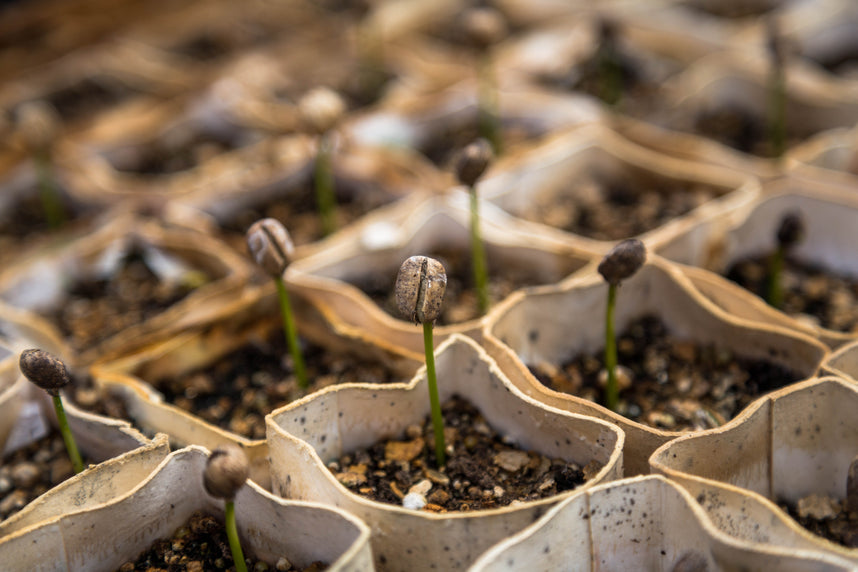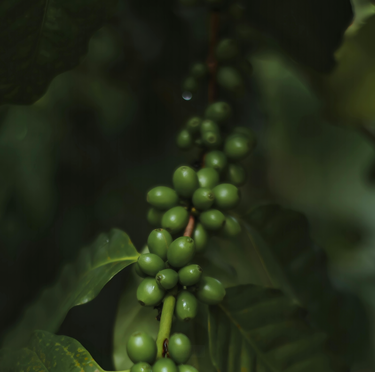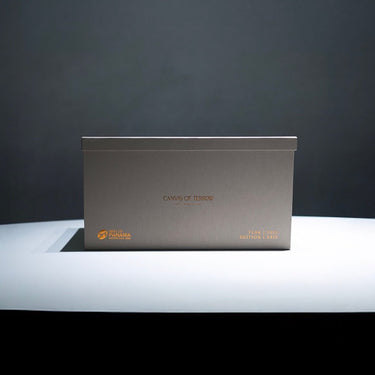If you drink a lot of coffee and as a result have a heap of coffee grounds it’s time to supercharge your garden with nutrients!
Coffee grounds have many benefits when used correctly. They can add nutrients to your compost heap, improve drainage, water retention and aeration of your soil as well as deterring slugs and snails (the smell can act as a cat deterrent too!)
The geeky bit..
Coffee grounds on average have as many macro and micro nutrients as the seeds or kernels of any plant. Seeds have more of the essentials nitrogen and phosphorus than other plant parts because they store them to be able to give their offspring the best start in life, until the new roots and leaves take over.
The thing about coffee grounds is that their carbon to nitrogen ratio is about 25:1. This makes them an ideal food for the vital microbes in the soil that are of fundamental importance in plant nutrition. These microbes have a carbon / nitrogen ratio of 8:1 - this appears out of balance with that of the coffee grounds but when growing, the microbes need 8 parts for their actual body of the plant and 16 parts in carbohydrates energy consumption!
In comparison old thick wood chips that are used for organic mulch have a carbon / nitrogen ratio of 500:1 meaning the microbes have to steal nitrogen from the soil taking it away from the plants, resulting in plants that become weak, yellowish and stunted.
Best practice ...
It is best to add coffee grounds to compost rather than straight into the soil or at least mix them into the top 5cm of soil just in case they are very finely ground as this can clog up soil pores and block drainage.
It’s important to understand that coffee grounds are ‘green waste’ (despite the colour!) which means it will need balancing with brown waste (dry leaves or newspaper) If you have too much green material your compost pile will start to smell. If you don't have enough, the compost pile won't heat up.
Most methods of brewing coffee require quite a fine grind and without properly composting your used coffee grounds you could be opening yourself up to issues. Those of us who have clay soil will know the perils of the soil clogging. if your coffee is not properly composted it could become more of a hindrance than a help and effectively choke your flowers and plants.
Our top tip? Make sure your coffee is composted for 90 days before you use it.
If you’re lucky enough to live near a Coffee Roastery it’s worth asking what they do with their coffee chaff; this bi product is gardening gold!
Coffee chaff is the thin skin that comes away from the coffee bean during the roasting process. The chaff is very light and papery - this makes it very quick to break down and will add plenty of nitrogen to your compost / soil.
Chaff is ideal for composting as it is light and airy so will mix really well with other compostable contents. It’s best to add a layer of chaff onto food waste and then more compost on top of the chaff, as due to its lightweight nature it could blow away quite easily and absorb water too, as a result could end up rather slimy.
If you're local to us in Cirencester feel free to get in touch and arrange collection of our coffee bio waste.
Fresh ground coffee...
Fresh coffee is much more acidic than used coffee grounds. If you have stale coffee lying around unused that you don’t want to throw away, use it as nutrients for plants that like acidic soil like hydrangeas, blueberries, and lilies (do not use around young plants and seedlings). Sprinkle around the base of the plant and dig it in to the soil.
Get Your Compostable Coffee From RAVE Today!
If you want to enjoy great tasting coffee while also helping nourish your garden, be sure to check out RAVE's range of compostable coffee options.
We offer many coffee beans that are certified 100% compostable and come without any non-biodegradable bags or ties. This makes adding coffee grounds to your compost heap or directly to soil in your garden bed easy while still getting that delicious fresh coffee flavour. When you buy coffee beans online from us, you can choose from organic and Fairtrade-certified options picked at peak ripeness.
We also have an ever-expanding line of compostable Nespresso pods. Crafted from plant-based materials and natural compostable bio-polymers, these pods break down completely in your backyard compost bin.
So treat your plants and please your palate too - get fresh, sustainably sourced coffee beans and compostable capsules sent to your door when you order online from RAVE today!







I love this! What ratio of coffee grounds to compost do you suggest?
Robert Els on
I’ve been using our spent grounds around my Hostas as an effective slug deterrent for years !
Pauline Sherwood on